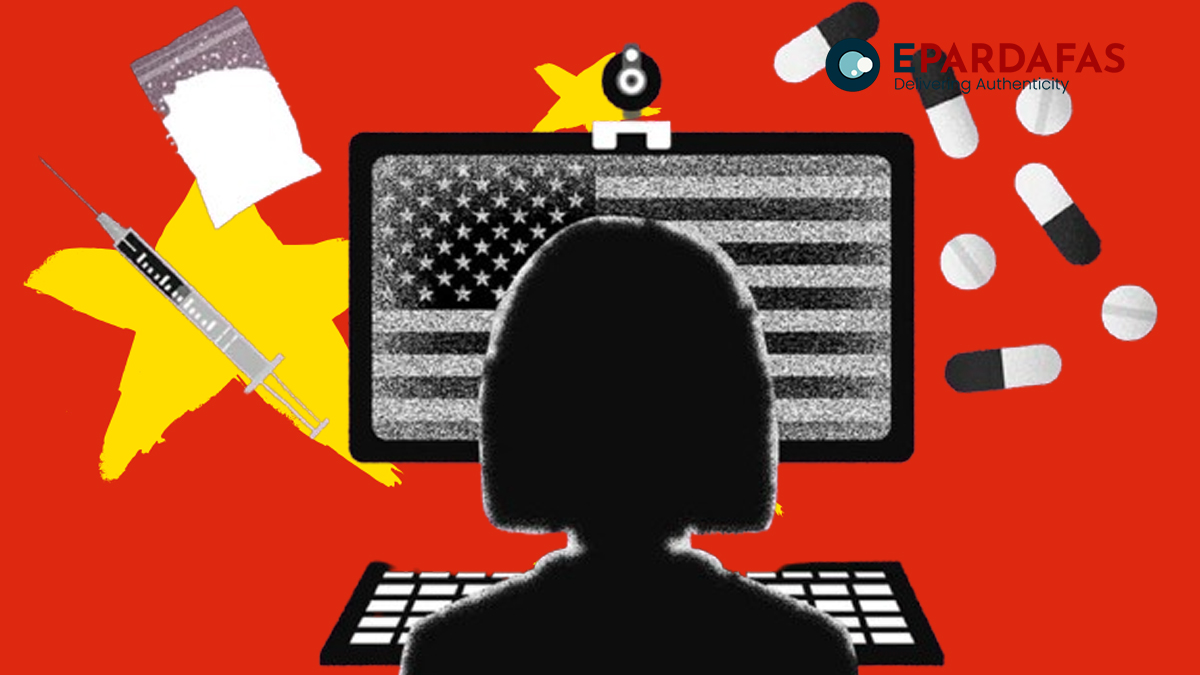
The Challenge of Curbing the Deluge of Chinese-made Drugs

In the sprawling landscape of China’s pharmaceutical and chemical industries, a complex web of commerce intersects with the illicit trade in synthetic drugs. Sammy’s journey from an English language student to an unwitting participant in the drug trade mirrors a broader phenomenon that poses a significant challenge to global law enforcement agencies.
Sammy, among potentially thousands of online sales representatives, found herself selling what she believed were harmless chemicals to clients worldwide. However, the reality of her trade soon became apparent as she encountered synthetic opioids like fentanyl, a substance wreaking havoc across continents, particularly in the United States. Despite international accusations implicating China in flooding the market with deadly drugs, the Chinese government vehemently denies such allegations.
But Sammy’s story is not unique. Sara, another online sales representative, proudly showcases photos and videos advertising a range of drugs, from synthetic cannabinoids to potent opioids like nitazenes. The allure of profit overshadows moral qualms as she boasts of her clientele in countries like Britain, hinting at the global reach of China’s illicit pharmaceutical trade.
The consequences of this trade are dire. In the UK alone, synthetic opioids like nitazenes have been linked to over 100 deaths in recent months, prompting concerns of a burgeoning drug crisis. The ease with which drugs are advertised and shipped, often disguised in innocuous packaging, exacerbates the challenge faced by law enforcement agencies.
Despite regulatory efforts, the clandestine nature of the trade persists. China, home to tens of thousands of pharmaceutical companies, grapples with the illicit production and distribution of synthetic drugs. Jeremy Douglas of the UNODC highlights the formidable challenge posed by the sheer scale of China’s pharmaceutical and chemical industries, coupled with the global movement of goods through various channels.
Synthetic drugs offer traffickers distinct advantages over traditional narcotics, presenting lucrative opportunities for both established criminal organizations and emerging players. Their compact nature, coupled with pre-existing demand, renders them attractive commodities in the illicit drug trade.
Yet, behind the veneer of legitimate commerce lies a sophisticated criminal enterprise. Dr. Louise Shelley of George Mason University describes it as “criminal entrepreneurship” within a legitimate framework, marked by professionalism and corporate elements unprecedented elsewhere.
The tacit acceptance of the drug trade as a facet of e-commerce underscores the complex interplay between profit motives and moral considerations. Sellers like Natalie, specializing in fentanyl, boast of expansive networks and professional shipping agents ensuring successful deliveries worldwide.
Despite regulatory measures and international cooperation, stemming the tide of synthetic drugs remains a daunting task. China’s ban on fentanyl in 2019 and joint operations with the US in 2024 signify steps towards addressing the issue. However, as long as demand persists, the intricate web of the global drug trade will continue to adapt and thrive, presenting a formidable challenge to law enforcement agencies worldwide.
Input from BBC












Comments